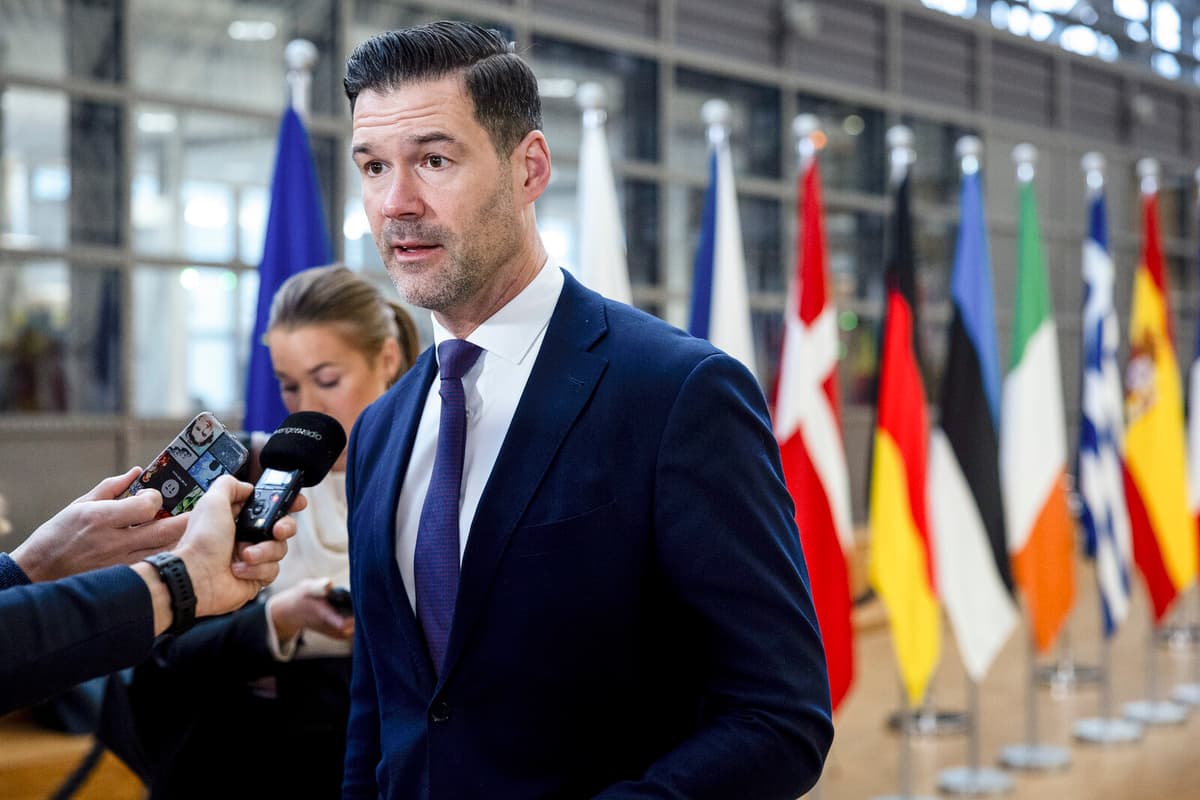The dramatic development in Syria is a given main topic in the corridors when the EU's migration ministers meet in Brussels. Millions of Syrians have fled their country since 2011. Now the question is how many can and want to return.
So far, most people are talking about "waiting and seeing".
It's difficult to say anything with certainty about how it will develop. The people who want to return should naturally be able to do so and then we should be able to help them do so. But it's still a bit too early, says Migration Minister Johan Forssell (M) at a Swedish press conference.
Proposals underway
Thursday's meeting is the first under the EU's new Home Affairs and Migration Commissioner Magnus Brunner. He has already promised accelerated proposals for new common rules on the deportation of persons without asylum grounds and which countries are considered safe enough to return to.
Johan Forssell hopes to get rid of the requirement for a special connection to countries that can be deported to. In that case, people who do not have asylum grounds can be sent to countries they passed through on their way to the EU, if it is not possible to send them back to their home countries.
Overall, the EU is moving towards a tougher migration policy. Sweden wants to see a concrete proposal from Brunner on so-called "return hubs", where deported persons can be gathered in countries outside the EU, waiting to be sent home.
Opening for "pushbacks"?
At the same time, the EU Commission has opened up for member states to disregard fundamental asylum rights if refugees are used as hybrid weapons against them – in the style of what has happened at, for example, Poland's and Finland's borders to the east.
But it should not be seen as a green light to push back in any way, according to Johan Forssell.
No, I wouldn't say that. But we have shown understanding for the Finnish and Polish situation. They have been subjected to a kind of hybrid warfare, says the Migration Minister.
After the regime change in Syria, EU leaders such as Commission President Ursula von der Leyen, Council President António Costa, and new Foreign Minister Kaja Kallas have had intensive phone contacts with various leaders in the region.
Von der Leyen is also traveling to Turkey at the beginning of next week to discuss the situation on site with President Recep Tayyip Erdogan.
A special Syria discussion will also be held at the EU countries' foreign ministers' meeting in Brussels on Monday.






